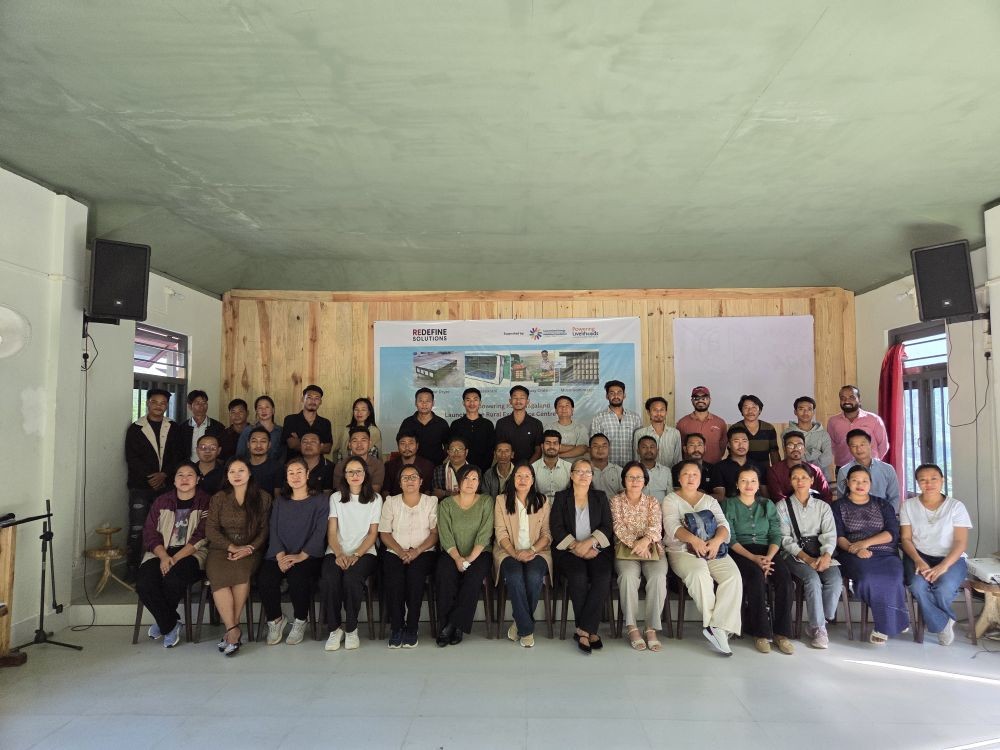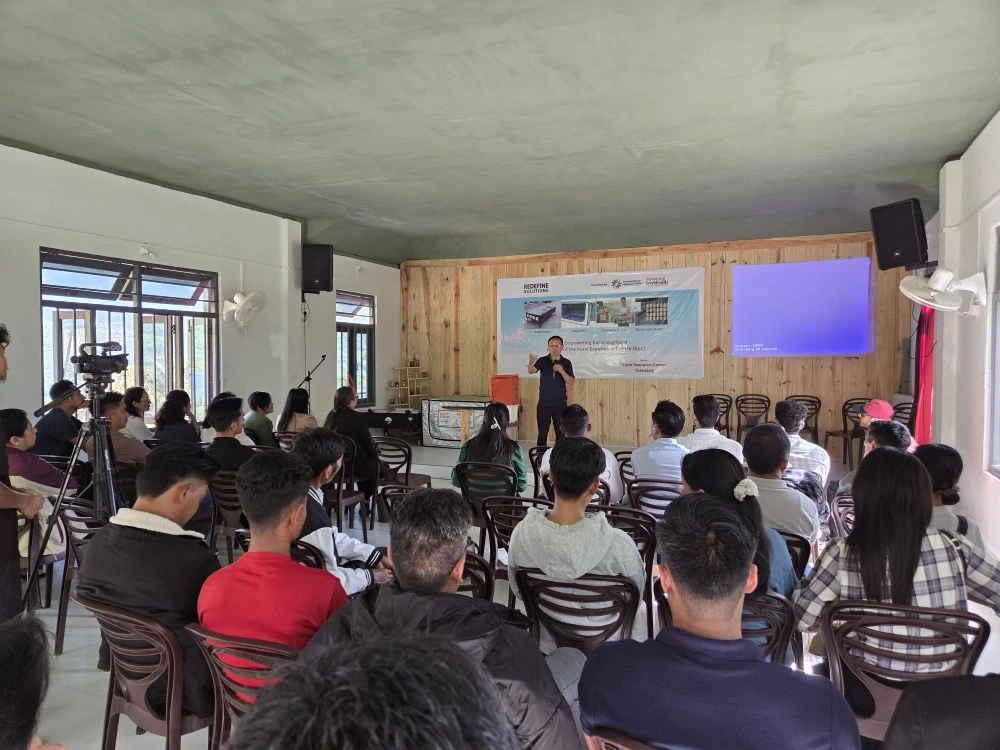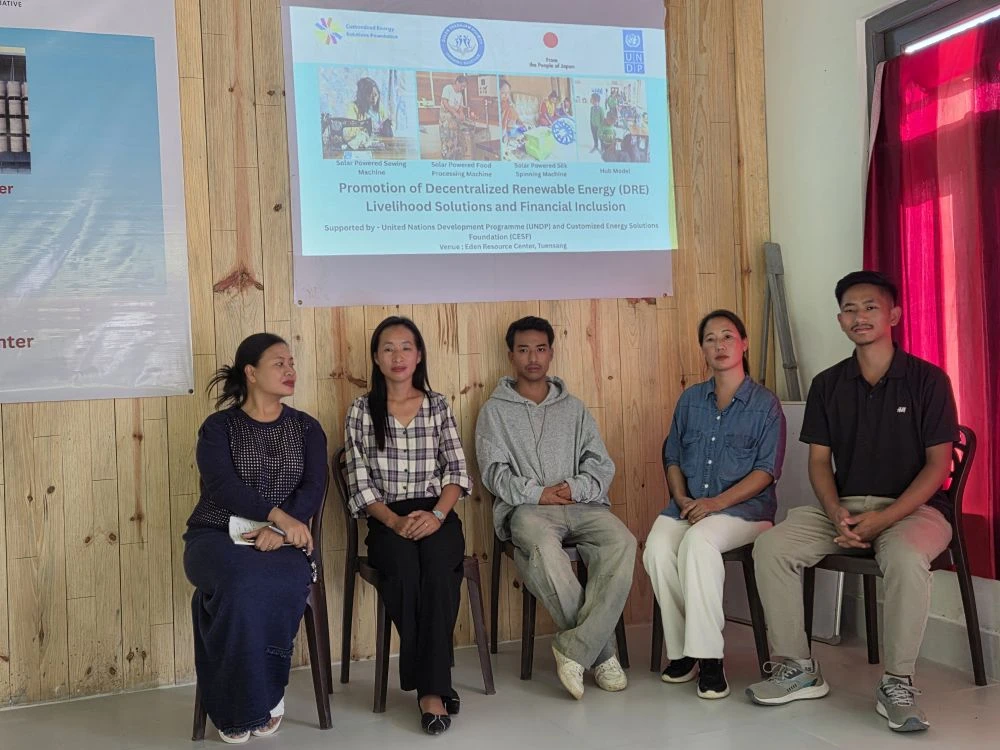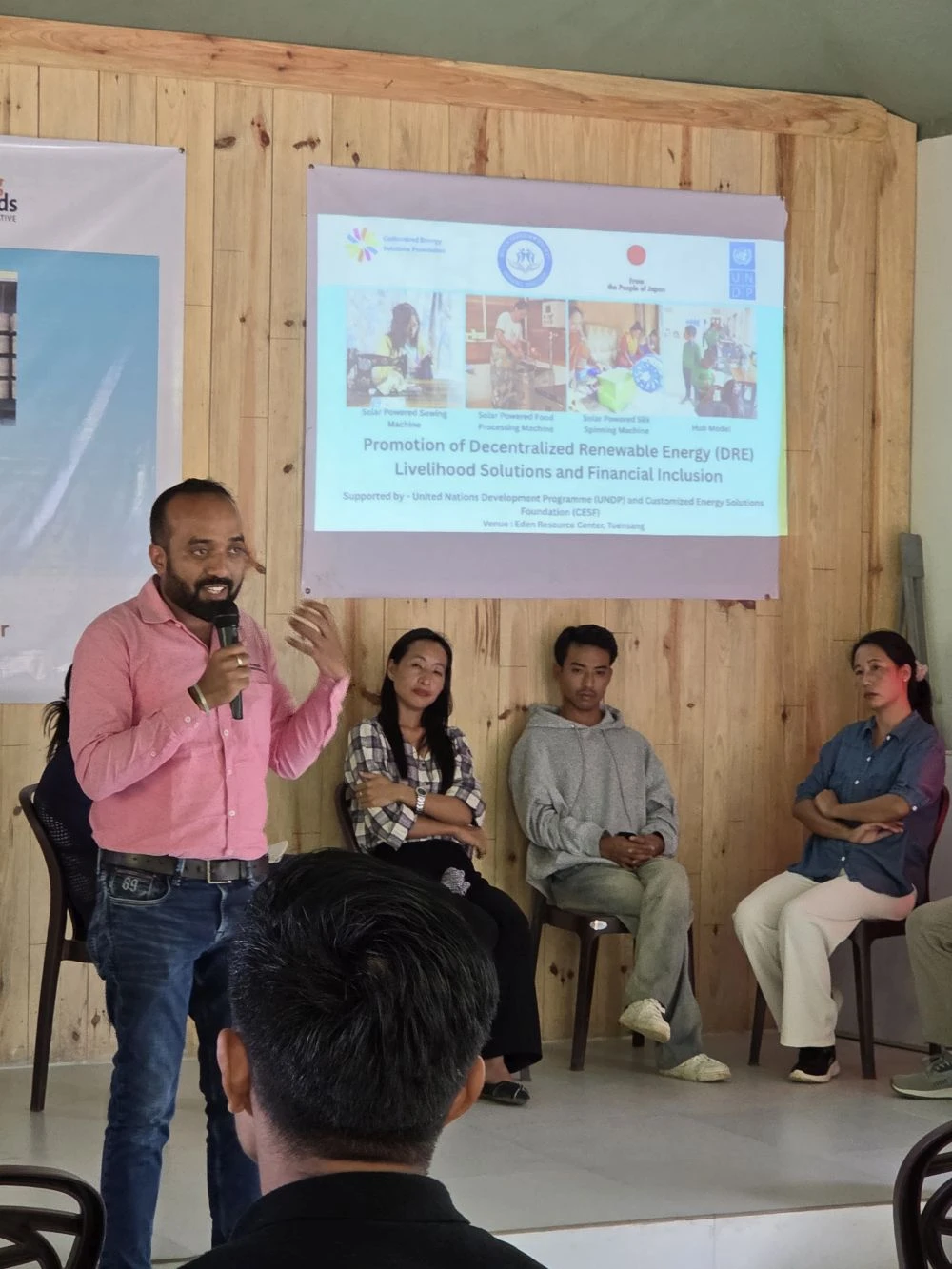Attendees during the inauguration of Rural Experience Centre at the Eden Resource Centre, Tuensang, on November 7. (Morung Photo)

Morung Express News
Tuensang | November 9
A Rural Experience Centre (REC) aimed at enhancing agri-based livelihoods through innovation and community-led enterprise was inaugurated at the Eden Resource Centre, Tuensang, on November 7.
The initiative, jointly implemented by Redefine Solutions in collaboration with Powering Livelihoods and the Customized Energy Solutions Foundation (CESF), with support from Dolen Thangjam Society and Chang Baptist Lashong Thangyen (CBLT), seeks to address challenges of productivity, post-harvest losses, and limited market access among smallholder farmers in Eastern Nagaland.
Gracing the launch as the special guest, Deputy Commissioner of Tuensang Lithrongla Tongpi Rutsa commended the collaborative effort, describing the initiative as “a step towards empowering rural communities through sustainable innovation, entrepreneurship, and self-reliance.” Representatives from partner organisations, community leaders, farmers, and beneficiaries also attended the inauguration.
Following the ribbon-cutting ceremony, participants toured the facility, which will serve as a hands-on learning and demonstration hub for farmers, women’s groups, and youth to explore modern agri-processing and value addition techniques.
Structured for long-term sustainability
During the event, Redefine Solutions outlined how the REC has been structured for long-term sustainability and local ownership. The centre will generate income through small-scale production, equipment-use fees, and regular training programmes. A local management team has already been formed to coordinate with farmer groups and ensure ongoing capacity building. Officials said this community-led approach ensures the centre remains financially sustainable and locally managed even after project funding concludes.
Achu Chang, who attended the event, said the centre would “help farmers build confidence in adopting new methods while keeping traditional values intact.” Speakers also acknowledged Tuensang’s logistical and market challenges but emphasised that sustainable value addition is achievable by focusing on high-value, low-volume products such as pickles, dried fruits, and spice mixes. The REC provides a space where farmers can observe and adopt technologies without needing to travel long distances. Partnerships with nearby markets and institutions are being developed to ensure consistent demand for locally processed goods.
The programme further highlighted the importance of integrating modern agricultural technologies with indigenous wisdom. Tools introduced at the centre, including solar dryers, improved storage systems, and small-scale processing equipment, are designed to enhance efficiency and quality while preserving traditional practices. “The goal is not to replace local knowledge but to strengthen it through cleaner, faster, and more sustainable methods,” said Hichila Chang of Redefine Solutions.
Regular assessments
Redefine Solutions also shared its plan to monitor the REC’s outcomes through practical livelihood indicators rather than training numbers. Assessments will focus on measuring growth in farmers’ and self-help group members’ income levels, the volume and value of processed goods sold, the number of new market linkages established, participation and income generation among women and youth, and the reduction in post-harvest losses. Impact assessments will be conducted quarterly to ensure continued relevance and measurable improvements in local livelihoods.
In addition to the REC initiative, Redefine Solutions and its partners have undertaken extensive solar electrification projects in Tuensang, including powering hostels, coffee machines, water pumps, and hydroponic systems. The organization also maintains a dedicated local service team to ensure long-term maintenance and reliability of installations across the district.
With its focus on innovation, inclusion, and resilience, the Rural Experience Centre is envisioned as a replicable model for other districts in Nagaland. It aims to strengthen rural value chains, create livelihood opportunities, and promote entrepreneurship among women and youth.
The event concluded with a special lunch and an interactive session where guests and beneficiaries engaged with the implementing team about the technologies on display. Participants expressed optimism that the initiative would bridge the gap between traditional farming wisdom and modern technology, fostering a more sustainable and self-reliant future for Tuensang’s rural communities.
The event began with a prayer by Achu Chang, followed by a welcome note and context-setting remarks by Rupesh Badhkal, programme manager, and Tarique, senior programme associate of Redefine Solutions.









